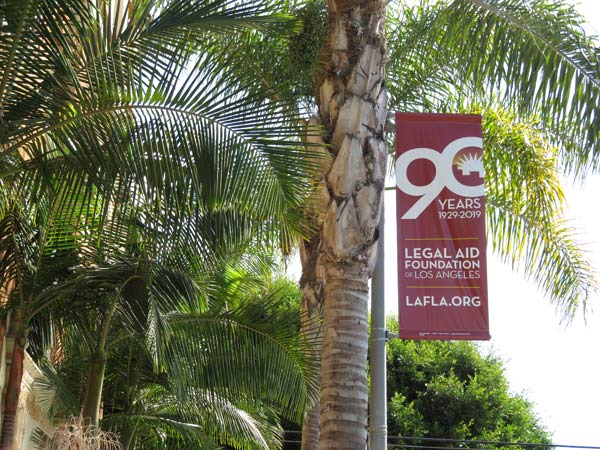Prior to Opening:
John Saeger Bradway conceived of clinical legal education and traveled the country establishing legal aid clinics in major cities. His interest in legal services began when he realized that “the guarantee in the Constitution of equal protection under the law was not self-executing and that the words were no more magical than any other words until someone came along to give them life. Of course, that somebody had to be a lawyer since it was against the law for anyone else to practice this profession.”
Law School Dean Justin Miller brought Mr. Bradway to the University of Southern California (USC) to establish the law school equivalent of clinical training in medical school. Because there was no existing legal aid society, Mr. Bradway had the clinic provide legal services to clients who had “meritorious legal claims but not much money in their pockets.”
The Southern California Legal Aid Clinic Association, LAFLA’s predecessor, is incorporated.
In just one year, 1,400 people applied for legal services.
Having outgrown the space at USC, the Clinic moved to the Cotton Exchange Building at 106 W. 3rd St.
The Board voted to adopt a new name — Legal Aid Foundation of Los Angeles.
The Legal Aid Foundation of Long Beach (LAFLB) was founded by the Long Beach Bar Association,
LAFLA merged with the Los Angeles Neighborhood Legal Services Society (LANLSS),
LAFLA took over the Family Law Center at 125 W. 4th St. which had been operated by Western Center on Law & Poverty.
The National Center for Immigrants, now named the National Immigration Law Center (NILC), was founded as part of LAFLA.
Gary Blasi (professor emeritus at UCLA Law School) and Barbara Blanco (now a professor at Loyola Law School) established LAFLA’s Eviction Defense Center (EDC).
LAFLA’s Immigrants’ Rights Office (IRO) was formed to provide direct representation to immigrants.
The Union of Legal Services Workers of Los Angeles (ULSW/LA) chapter of the National Organization of Legal Services Workers amalgamated local union 2320 UAW, AFL-CIO.
The Maynard Toll Award was created and awarded at what was to become the annual Maynard Toll Luncheon, (now the annual Access to Justice Dinner), named after esteemed attorney Maynard Toll, credited with helping the law firm of O’Melveny & Myers gain national prominence, and a major figure in establishing federally funded legal services.
LAFLA opened Santa Monica office with funding assistance from City of Santa Monica.
The Asian Pacific Islander (API) language hotlines were established in Korean, Chinese, and Tagalog.
Start of Bill Smith Homeless Veterans’ Project, which eventually became the Veterans Justice Center, which provides free civil legal services to low-income Veterans.
Merged with the Legal Aid Foundation of Long Beach, enabling the two organizations to better serve our diverse communities by sharing resources and expertise.
LAFLA hosted 75th anniversary symposium that brought together range of perspectives on challenge of realizing equal justice in Los Angeles.
Construction completed on Ron Olson Justice Center, LAFLA’s new headquarters at 1550 W. 8th Street.
LAFLA celebrated 90 years as the frontline law firm for those living in poverty across Greater Los Angeles.
Today:
With more than 100 employees, five office locations, three domestic violence clinics and four self-help legal access centers located in courthouses throughout the Los Angeles metropolitan area, LAFLA is an integral part of the communities it serves. Our client services range from maintaining affordable housing and helping people move from welfare to work, to providing eviction defense, relief from domestic violence and assistance with record expungements.
As part of a community of advocates for those living in poverty, LAFLA works alongside other legal services programs, public interest firms, law firms, private lawyers, social service providers, charitable organizations, law schools and community-based groups.




